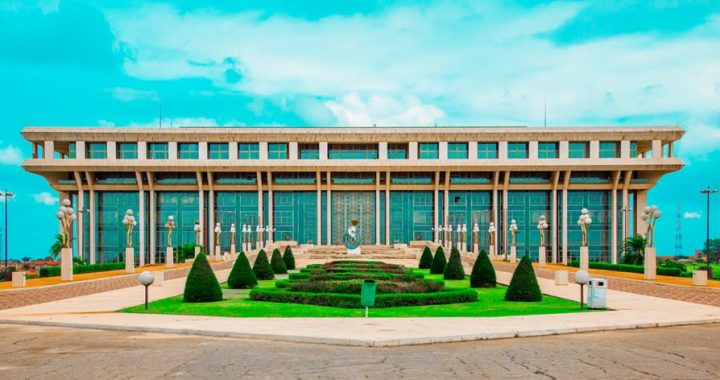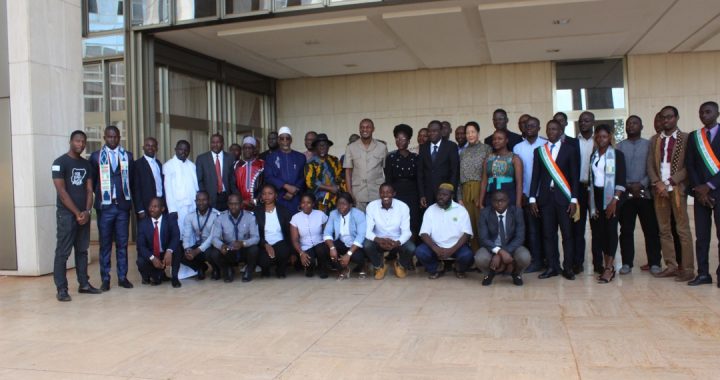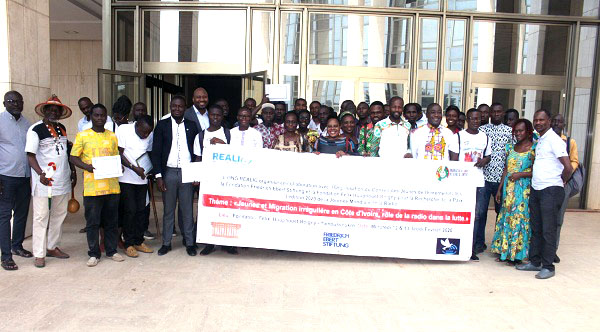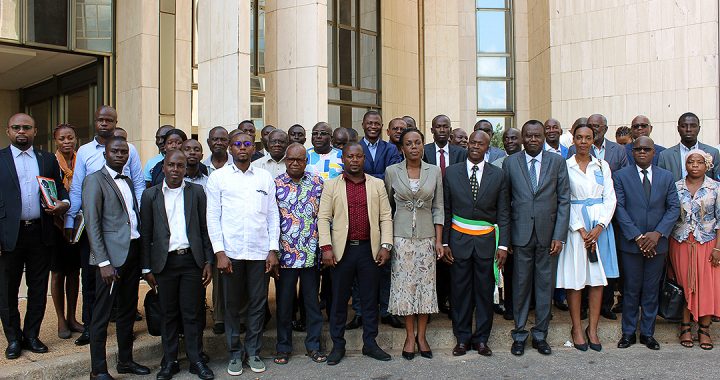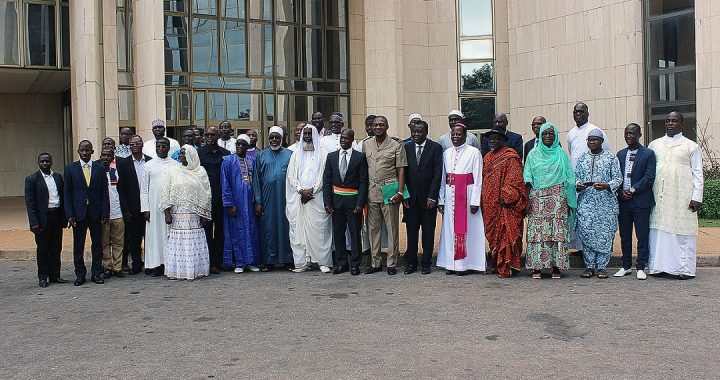Yamoussoukro Symposium (Côte d’Ivoire)
Theme: “They are called “taboussés/taboussis”, “dankasa” … the descendants of migrants in West Africa
December 12-14, 2022
CALL FOR PAPERS
Argument
In West Africa, migration has been “a major socio-economic factor since the colonial conquests“. It is mainly internal migration in this subregion. Intensified in the colonial context, subregional migration was initially based on constraint, then became economic in the context of free labor migration. The countries of the hinterland (Burkina Faso, Mali, Niger) were perceived as a “reservoir” of labor and the countries of the coastal zone (Côte d’Ivoire, Ghana, Senegal, Nigeria) as “islands of prosperity. Gradually, a cumulative causality led to circular or definitive migrations. Whether premeditated or not, multi-annual, lifetime and permanent migrations contribute to the constitution of diasporas. The term diaspora, although accepted by the research community, is nevertheless the subject of epistemological debates and redefinitions in the West African geographical space. Indeed, to varying degrees, every country is both a home of emigration and a home of immigration.
The gradual settlement of migrants and their families in host countries has led to the construction of large diasporic communities. This has been done in different ways:
- migrants leaving their countries of origin left with their wives and had children in the host country,
- migrants, after a stay in the host countries, went temporarily to their countries of origin, contracted marriages there and returned to settle permanently,
- migrants have married native women in the host countries,
- descendants of migrants have married within the diaspora community, etc.
In fact, decades of immigration in host countries justify the presence of several generations of immigrants and descendants of immigrants. The case of the Ivory Coast is quite emblematic. As a major source of immigration in West Africa, there has been an upward trend in the number of immigrants, followed by a downward trend since the 1990s. The high proportion of non-nationals in the Ivorian population makes it unique, which gives rise to debate and confusion. We lose sight of the fact that the descendants of migrants were born in the host country to immigrant parents, grandparents or great grandparents. Whatever the reasons for their immigration, people of foreign origin need to integrate. The same is true for their descendants. To do so, they deploy various strategies on the economic, socio-cultural and legal levels. In fact, the lives of immigrants oscillate between complementary or opposing processes, namely:
- integration ie an adhesion and a sharing of values, logics that a will to belong to the host community while being recognized as a homogeneous whole;
- assimilation, i.e. blending into the host community while excluding any particularism.
The specific group of descendants of migrants is at the center of the reflections of this colloquium whose central theme is “Descendants of Migrants in West Africa“.
Concepts have been coined in national languages, both in the communities of origin of migrants, diasporic communities and host communities, to designate the descendants of migrants. These are, for example, the terms “taboussés/taboussis”, “dankasa”… whose history deserves analysis.
In the implementation of transnational migrations, transgenerational mechanisms and values have also been experimented. The integration of the descendants of migrants has singular stakes. Born in their parents’ country of immigration, they live in a sort of in-between situation. They are both from here (host country) and from elsewhere (country of origin). This situation is further reinforced when one of their parents is a national of the host country. This is the case in Ghana for the “dankasa”, a Hausa term for the descendants of immigrants born to Ghanaian mothers. West Africa being a large area of intra-regional migration and population mixing, the countries of the region, to varying degrees, are home to descendants of migrants. Côte d’Ivoire, Ghana, Senegal, Nigeria, Burkina Faso and Mali are examples of countries that are strongly impacted by the reality of the descendants of migrants. However, studies on this specific group are few and far between.
A fundamental question about the integration of descendants of migrants arises: How many generations of migrants’ children should still be considered in the immigrant population, when one is obviously not born an “immigrant”? In the host countries, the descendants of migrants constitute an increasingly important part of the population. This represents a fundamental demographic change in the countries of immigration. Because of their legal status, the descendants of migrants are divided between nationals of the host countries and those of the countries of origin. The latter return temporarily or permanently to their countries of origin for various reasons. Burkina Faso, for example, has for decades been receiving an increasing number of thousands of descendants of migrants from Côte d’Ivoire in search of enrollment in public universities.
A real reconstruction of identity is thus taking place in the host country, among the migrants and even more so among their descendants. To varying degrees, the latter maintain a link with both the country of birth and the country of origin, thus living in a “double registration”. Some descendants of migrants are progressively severing their ties with their countries of origin. They are then in advanced logics of integration and assimilation. Socio-cultural, economic, legal and political issues exist among the descendants of migrants in a context of various claims and denial of identity in the host and origin countries.
In the dynamics of transnationalism in the study of migration, papers could address the theme of the conference from the symbols of belonging, the logic of mobility, representations of territories, borders and nation-states of origin and the influence of communities.
Axes of thought
The major axes according to which the communications will be proposed are the following:
Axis 1: The socio-economic and cultural integration of the first generations of descendants of migrants and the issue of “return to the country
Axis 2: The questions of nationality/citizenship of descendants of migrants, their political commitments and statelessness
Axis 3: Identity constructions and feelings of belonging among the descendants of migrants: being from here and there.
Organizing institutions:
The colloquium is organized by the Félix Houphouët Boigny Foundation for Peace Research with partner universities: Université Félix Houphouët-Boigny, Université de Ouagadougou Joseph Ki-Zerbo, Université du Québec à Montréal.
Targeted participants
Various profiles of participants are expected to attend this conference. They are particularly, teachers-researchers from universities, researchers from research institutions, doctoral students. In addition to the world of higher education and research, participants are expected from experts in the field of migration, international institutions, NGOs, the political world and government institutions, etc.
Working languages
The working language of the conference is French. However, papers in English are accepted.
Scientific Committee:
President
Pr. MANDÉ Issiaka, Political Science Department, UQAM, Montreal, Canada.
Members
Pr. BANTENGA Moussa Willy, historian, Joseph Ki-Zerbo University, Ouagadougou, Burkina Faso.
Dr. M. C. CISSÉ Chikouna, historian, Université Félix Houphouët Boigny, Abidjan, Côte d’Ivoire.
Pr. LOUCOU Jean Noël, historian, Université Félix Houphouët Boigny, Abidjan, Côte d’Ivoire. Pr. NDIAYE Ndeye Dieynaba, jurist, Department of Legal Sciences, UQAM, Montreal, Canada.
Dr. SERHAN Nasser, Geographer, Université Félix Houphouët Boigny, Abidjan, Ivory Coast.
Pr. PICHÉ Victor, Honorary Professor, University of Montreal, Montreal, Canada.
Dr. M. C. PARÉ Moussa, historian, Université Félix Houphouët-Boigny, Abidjan, Ivory Coast.
Dr. M. C. SAWADOGO Boukary Mathias, historian, Université Félix Houphouët-Boigny, Abidjan, Ivory Coast.
Dr. M. C. SAWADOGO Mahamadou, sociologist, Joseph Ki-Zerbo University, Ouagadougou, Burkina Faso.
Dr. SOUKOUNA Sadio, political scientist, UQAM, Montreal, Canada.
Committee Secretariat
Dr. M. A. OUEDRAOGO Serge Noël, historian, Joseph KI-ZERBO University, Ouagadougou, Burkina Faso.
Dr. KABORÉ Adama, Abidjan, Ivory Coast.
Organizing Committee
President:
Dr. M. C. PARÉ Moussa, historian, Félix Houphouët-Boigny University, Abidjan, Ivory Coast.
Members
Dr. M. C. CISSÉ Chikouna, historian, University Félix Houphouët Boigny, Abidjan, Ivory Coast.
Dr. M. C. SAWADOGO Boukary Mathias, historian, University Félix Houphouët-Boigny, Abidjan, Ivory Coast.
Dr. M. A. OUEDRAOGO Serge Noël, historian, Joseph KI-ZERBO University, Ouagadougou, Burkina Faso.
Dr. KABORÉ Adama, Abidjan, Ivory Coast.
Terms of submission
Proposals for papers should include a title, first and last name, position, e-mail address, telephone number, institutional affiliation of the author(s) and an abstract (in French and English) of 250 words maximum, presenting the problematic of the subject, the theoretical and methodological framework and key words (maximum 5). The abstracts and articles, written in Times New Roman font, 1.5 line spacing, must be sent in Word format to the following address: colloquedescendantsdemigrants@gmail.com.
Practical dates
- July 30, 2022: Deadline for receipt of paper proposals
- August 15, 2022: Response to contributors/confirmation of participation in the conference
- October 30, 2022: Deadline for submission of papers
- December 12, 2022: Holding of the conference
- February 28, 2023: Submission of revised papers
- May 30, 2023: Publication of the proceedings of the conference.
Elements of bibliography
AL-ALI, N. and KOSER K., 2001, New Approaches to Migration? Transnational Communities and the Transformation of Home, Taylor & Francis Group.
ASIWAJU, A. I., 1976, “Migrations as Revolt: The Example of the Ivory Coast and the Upper Volta before 1945” in Journal of African History, vol. 17, no. 4, pp. 577-594.
BANTENGA M. W., 1996-1997, “De la connaissance de l’originalité démographique du pays moaaga à la mobilisation des populations dans le cadre des politiques coloniales (1888-1937)” in Science et Technique, vol. 22, n° 2, pp. 9-20.
BOUQUET C., 2003, Le poids des étrangers en Côte d’Ivoire / The importance of foreigners in Ivory Coast in Annales de Géographie, t. 112, n° 630, pp. 115-145.
BREDELOUP. S., 2004, ” La Côte d’Ivoire ou l’étrange destin de l’étranger ” in Revue européenne des migrations internationales, 19 (2), pp. 1-26.
CISSÉ C., 2013, Migrations et mise en valeur de la Basse Côte d’Ivoire (1920-1960), Les forçats ouest- africains dans les bagnes éburnéens, Paris, L’Harmattan, 311 p.
COLEMAN S. and MAIER K. “In, Of, and Beyond Diaspora: Mapping, Migration, and the Production of Space among Nigerian Pentecostals” in Diaspora: A Journal of Transnational Studies, vol. 19 n°. 1, 2010, p. 9-31. Project MUSE muse.jhu.edu/article/640334. COQUERY-VIDROVITCH, C., GOERG, O., MANDÉ, I. & RAJAONAH, F. V. (2003). Être étranger et migrant en Afrique au XXe siècle: Enjeux identitaires et modes d’insertion. Paris: L’Harmattan.
FAIST T. et al. 2011, The Migration-Development Nexus: A Transnational Perspective. Palgrave Macmillan.
FALL D., and FENEYROL O., 2011, Quelle protection pour les enfants concernés par la mobilité en Afrique de l’Ouest? Our positions and recommendations. s.n.
FARMA G., 2017-2018, L’entre-deux des descendants de migrants burkinabè en Côte d’Ivoire : Retour et intégration des étudiants ” diaspos ” dans le milieu universitaire au Burkina Faso, Master en médiation culturelle, Université de Lille 3, 149 p.
HILLMANN F. et al, editors, 2019, Trajectories and Imaginaries in Migration: The Migrant Actor in Transnational Space. Routledge.
http://www.ladocumentationfrancaise.fr/dossiers/d000073-immigration-et-politique- migratoire-en-france /immigres-assimilation-integration-insertion-some-definitions.
KABORÉ A., 2021, Mise en perspective historique des mutations migratoires voltaïques/burkinabè en Côte d’Ivoire (1960-2002), Thèse de doctorat unique, Histoire, UFHB, 421 p.
KIPRÉ P., 2010, Migrations en Afrique noire : La construction des identités nationales et la question des étrangers, Abidjan, Éditions du CERAP, 160 p.
MANDÉ I., 1995, ” Les migrations de travail des Voltaïques, une panacée pour l’économie ivoirienne de 1919 à 1960 ” in MASSA G. et MADIÉGA Y. G. (eds.), La Haute-Volta coloniale, témoignages, recherches, regards, Paris, Khartala, pp. 313-339.
KLEIS N. and THORSEN D., 2017, Hope and Uncertainty in Contemporary African Migration, Routledge.
OUÉDRAOGO S. N., 2019, ” Le dilemme de la nationalité chez les Burkinabè au Ghana ” in BREDELOUP S., DEGORCE A. and PALE A. (sous dir.), Se chercher en migration, Expériences burkinabè, Paris, L’Harmattan, pp. 77-97.
PICHÉ V. and CORDELL D. D., 2015, Entre le mil et le franc. Un siècle de migration circulaire en Afrique de l’Ouest. Le cas du Burkina Faso, Montreal, Presses de l’Université du Québec, Collection Les sociétés africaines en mutation, 406 p.
ROUCH J., 1956, “Migrations au Ghana” in Journal de la Société des Africanistes, volume 26, pp. 33-196.
SADOUNI S. and GAZIBO M., 2020, Migrations et gouvernance en Afrique et ailleurs, ed. Presses de l’Université du Québec, Project MUSE muse.jhu.edu/book/78362.
SAHOO A. K. and BRIJ M., 2007, Sociology of Diaspora: A Reader, Rawat Publications. SCHMOLL C., 2021, “L’approche transnationale dans les études migratoires. Retour sur 30 ans de travaux ” in SIMONNEAU D. (dir.), Dossier ” Vivre le transnational. Ancrages et circulations en débat “, De facto [En ligne], 28 | October 2021, online on 25 October 2021. URL : https://www.icmigrations.cnrs.fr/2021/09/15/defacto-028-01/
TOUNKARA D. G., 2010, ” Cinquante ans de politiques de la nationalité en Côte d’Ivoire “, in Outre-mers, Tome 97, n°368/369, pp. 159-175.
YODA H., 2019, Les colons d’origine voltaïque des villages de colonisation de la région de la Marahoue (Bouaflé et Zouénoula) : Entre immigration et intégration de 1933 à 2010, Thèse de doctorat unique, Histoire, UFHB, 554 p.
ZONGO M., 2003, ” La diaspora burkinabè en Côte d’ivoire: trajectoire historique, recomposition des dynamiques migratoires et rapport avec le pays d’origine ” in Revue africaine de sociologie, 7(2), pp. 58-72.
ZONGO M., 2016, ” La diaspora burkinabè en Côte d’Ivoire : entre vulnérabilité et quête d’appartenance ” in BREDELOUP S. et ZONGO M. (dir.), Repenser les mobilités burkinabè, Collection Études africaines, Paris, L’Harmattan, pp. 37-66.


